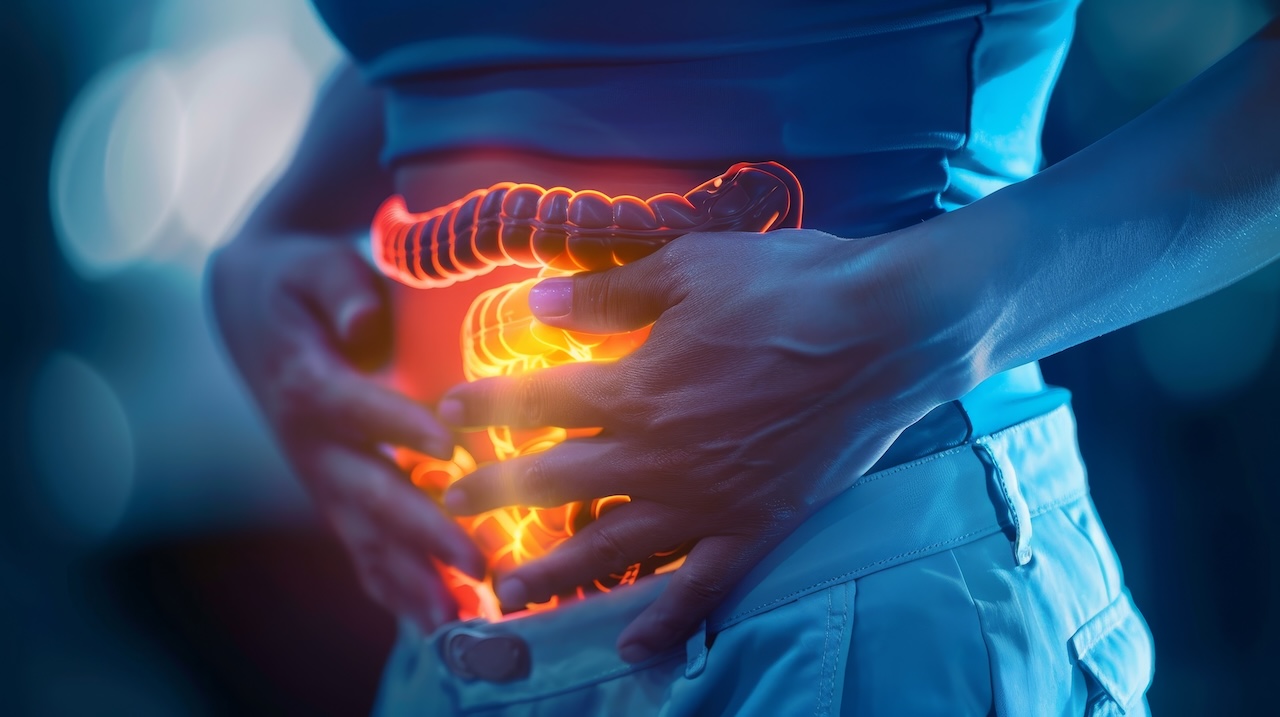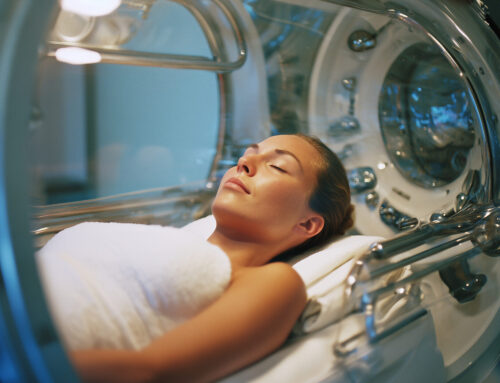Introduction
Ulcerative Colitis (UC) is a chronic inflammatory bowel disease (IBD) that causes inflammation and ulcers in the lining of the large intestine (colon) and rectum. It can cause nasty symptoms like abdominal pain, diarrhea, rectal bleeding, and fatigue. While there is no cure for UC, there are treatments that can help manage symptoms and reduce flare-ups. One of those is Hyperbaric Oxygen Therapy (HBOT).
What is Ulcerative Colitis?
- Inflammation: UC is chronic inflammation of the colon and rectum.
- Symptoms: Abdominal pain, diarrhea (with blood), rectal bleeding, urgency to poop and fatigue.
- Flare-ups: UC follows a pattern of flare-ups (active disease) and remission (little to no symptoms).
- Complications: In severe cases, UC can cause colon perforation, toxic megacolon, and an increased risk of colon cancer.
What is HBOT?
- Oxygen under Pressure: HBOT is breathing pure oxygen in a pressurized chamber.
- Increased Oxygen Levels: This increases the amount of oxygen in the blood, promoting healing and reducing inflammation.
How HBOT helps with UC
- Reduced Inflammation: HBOT has anti-inflammatory effects, which reduce inflammation in the colon and rectum.
- Improved Blood Flow: HBOT improves blood flow to the affected areas, promoting aging and tissue repair.
- Stimulated Cell Growth: The increased oxygen levels promote the growth of new blood vessels and tissue, which aids in the healing process.
- Enhanced Immune Function: HBOT also enhances the immune system to fight infection and promote healing.
Research and Evidence – Case Studies
While research on HBOT for UC is ongoing, some studies show promise.
Case studies show that HBOT has resulted in remission of UC..
HBOT can cut down on the need for pharmacological remedies.
Moderate to severe flares of UC has been reduced, thanks to HBOT.
Benefits of HBOT for UC
- Decreased Flare-ups: HBOT may reduce the frequency and severity of UC flare-ups.
- Improved Symptoms: Patients may experience reduced symptoms such as abdominal pain, diarrhea, and rectal bleeding.
- Quality of Life: By reducing symptoms and flare-ups, HBOT can improve overall quality of life.
- Less Medication or Surgery: In some cases, HBOT may reduce the need for medication or surgery.
Safety and Side Effects
HBOT is generally safe when administered by trained professionals. However, like any medical treatment, it can have side effects.
- Ear Barotrauma: Discomfort or pain in the ears due to pressure changes
- Sinus Barotrauma: Discomfort or pain in the sinuses due to pressure changes
- Myopia (Nearsightedness)
- Temporary changes in vision
- Oxygen Toxicity: Rare but serious side effect of breathing high levels of oxygen for extended periods
How HBOT Reduces Inflammation and Promotes Healing – A Quick Overview
Reducing Inflammation:
HBOT reduces inflammation in the colon by increasing the oxygen supply to the affected tissues. This surge in oxygen counteracts the inflammation caused by the immune system overreaction in UC.
The therapy also reduces the concentration of inflammatory proteins in the affected areas. These proteins play a key role in the inflammatory cascade and their reduction calms inflammation.
HBOT targets and eliminates bacteria that thrive in low-low environments. These bacteria can exacerbate inflammation, and their elimination creates a healthier gut environment.
Promoting Healing:
HBOT facilitates tissue repair by stimulating cell growth and guiding stem cells to the damaged areas. This accelerates the healing of the colon lining.
The therapy increases oxygen levels in bots and tissues, creating an environment conducive to healing. Adequate oxygen is necessary for cell regeneration and tissue repair.
HBOT may also mobilize bone marrow stem cells and guide their differentiation into colonic mucosal cells. This potential mechanism can contribute to the regeneration of the colon lining.
Boosting Antioxidant Defenses:
HBOT increases antioxidant enzymes like glutathione peroxidase and superoxide dismutase. These enzymes neutralize free radicals and protect cells from oxidative damage.
The therapy decreases oxidative stress markers like malondialdehyde. This means decreased oxidative stress, which can damage cells and contribute to inflammation.
Why UC Flare-Ups Happen
- Immune System Dysfunction: UC is an autoimmune disease in which the immune system attacks the colon lining, causing chronic inflammation.
- Stress: Psychological stress is a major trigger for UC flare-ups. It can activate the immune system and worsen inflammation.
- Dietary Factors: Certain foods and beverages can irritate the digestive system and trigger flare-ups. These include spicy foods, caffeine, alcohol, fried foods and carbonated beverages.
- Medication Issues: Use of NSAIDs and antibiotics can trigger flares. Not taking medication as prescribed can lead to a relapse of symptoms.
- Environmental Factors: Exposure to air pollution has been linked to increased risk of UC flare-ups.
- Genetic Predisposition: Individuals with a family history of UC are at a higher risk of recurrent flares.
HBOT as an Adjuvant Therapy for UC
By addressing the underlying causes of UC flares and using HBOT to heal and reduce inflammation, patients may experience fewer and milder flares. HBOT can be used as an adjuvant to conventional treatment to manage UC and improve quality of life.
Key Points:
- HBOT may reduce the frequency and severity of UC flares.
- It increases oxygen delivery, reduces inflammation, promotes healing, and boosts antioxidant defenses.
- Various factors, immune system dysfunction, stress, dietary factors, medication issues, environmental factors, and genetic predisposition, can trigger UC flares.
- HBOT may be an addition to the treatment plan for UC patients, but consult a healthcare professional to determine if it’s right for you.
Conclusion
HBOT shows promise as a complementary therapy for managing UC and reducing flare-ups. While more research is needed, the potential benefits of HBOT, including reduced inflammation, improved blood flow, and enhanced healing, make it a valuable option for patients with UC. If you are considering HBOT for UC, it is essential to consult a doctor to discuss the potential risks and benefits and determine if it is right for you.






